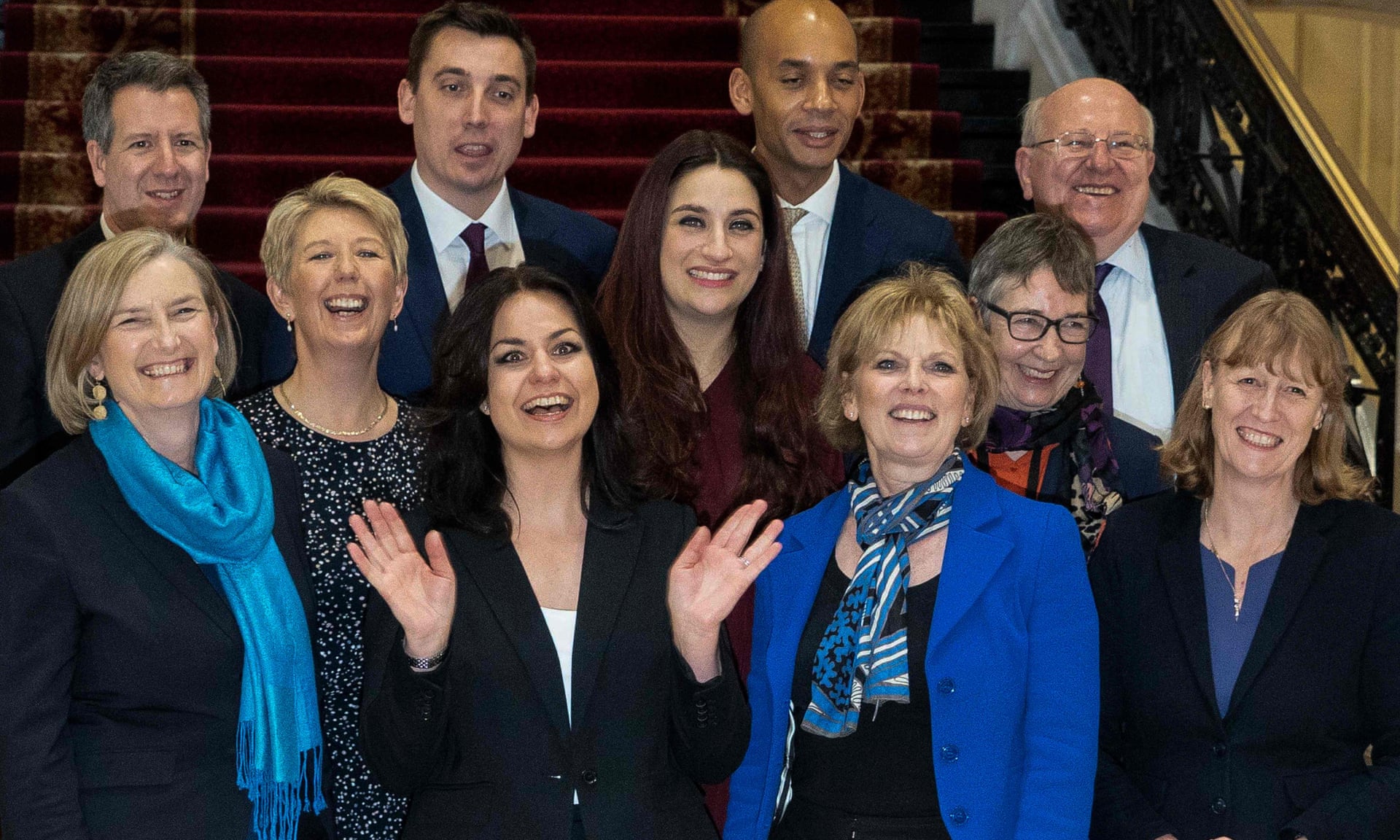
So 7 Labour MPs chose to resign the party whip and set up an independent group citing dissatisfaction with Corbyn’s leadership and claiming endemic anti-Semitism within the party. Hardly the most pressing issue exercising the minds of the populace just now. Perhaps it was the only issue they could find to unite around.
Then they were joined by an eighth Labour MP and three Tories. Hardly a rush to the centre.
But enough to worry Corbyn and May, and soon, perhaps, enough to ensure that the DUP and ERG aren’t the only game in town. The problem is that it is not clear they have a unified and coherent plan for dealing with Brexit. Do they all support a second referendum? Will some support May’s deal if the alternative is no deal? Will their whole raison d’etre be undermined if Corbyn ends up supporting a delay and then a second referendum?
So far they aren’t a game changer, but if their numbers grew to perhaps 20 – roughly equally from both Labour and Tory camps – they could come to represent a new balance of power with which either May or Corbyn would have to treat with if they wanted to have any hope of achieving a parliamentary majority.
But how coherent a group are they? What are their policies and objectives? Say what you like about the DUP, but all their 10 MPs march in lock step. It seems appropriate that they have formed themselves, initially at least, as a limited company rather than a party. They seem more of a business lobby than a traditional political party, and much of their funding probably comes from businesses terrified at the prospect of a no deal Brexit. But in the age of Russian election interference and Zionist influence peddling, the funding opaqueness represented by private equity ownership doesn’t present a good look.
So they probably have a few weeks to consolidate their numbers, form a party, formulate some policies and elect a few spokes people if not an outright leader. Otherwise they may well slide into incoherence and irrelevance.
One issue parties rarely do well in the longer term, but if their issue is a second referendum to give voice to the 48% who voted Remain and the majority who would probably support Remain in preference to May’s deal or no deal now, then they have a shelf life at least until that referendum is held. After that they would probably have to join up with the Liberal Democrats to survive.
There has been some commentary that they don’t include any national figures comparable to the “gang of four” (Roy Jenkins, David Owen, Shirley Williams and Bill Rodgers) who formed the breakaway Social Democrats who later combined with the Liberals to form the Liberal Democrats. This may effect their prospects in the longer term, but right now its a number’s game. If they can attract a few more MPs they could supplant the DUP as the swing vote in the House of Commons.
So far Theresa May seems barely to have noticed – determined to plow her own furrow of seeking legal guarantees around the Irish backstop. But it seems unlikely that any deal she can negotiate with the EU will mollify the DUP, in which case the Independent Group votes could come into play.
Equally likely however, is that they will join the flotsam and jetsam of history, the litany of breakaway groups that ended up going nowhere, destroyed by their own incoherence and the first past the post single seat constituency parliamentary electoral system which permits of only two major national parties. The centre may not hold, and even if it does, it may simply move elsewhere.
The question is whether Theresa May is following her present course out of conviction or merely to mollify her hard liners. It seems to me it is both: she seems genuinely committed to delivering her version of Brexit and opposed to a second referendum on principle. In which case she may prefer a no deal Brexit and running down the clock to dealing with the Independent group in order to achieve a parliamentary majority for a softer Brexit.
If May succeeds, the Independent Group could end up being the shortest living political movement in recent history. Alternatively they could be the vital missing piece in putting together a coalition with the numbers to pursue an alternative course of action. But Corbyn is yet another missing piece in this jig-saw. Just precisely what will he do if a no deal Brexit beckons?
One way or the other, it may well be that only the people can decide. Are there sufficient further MPs prepared to force an election or a second referendum by supporting a vote of no confidence in the Government?




